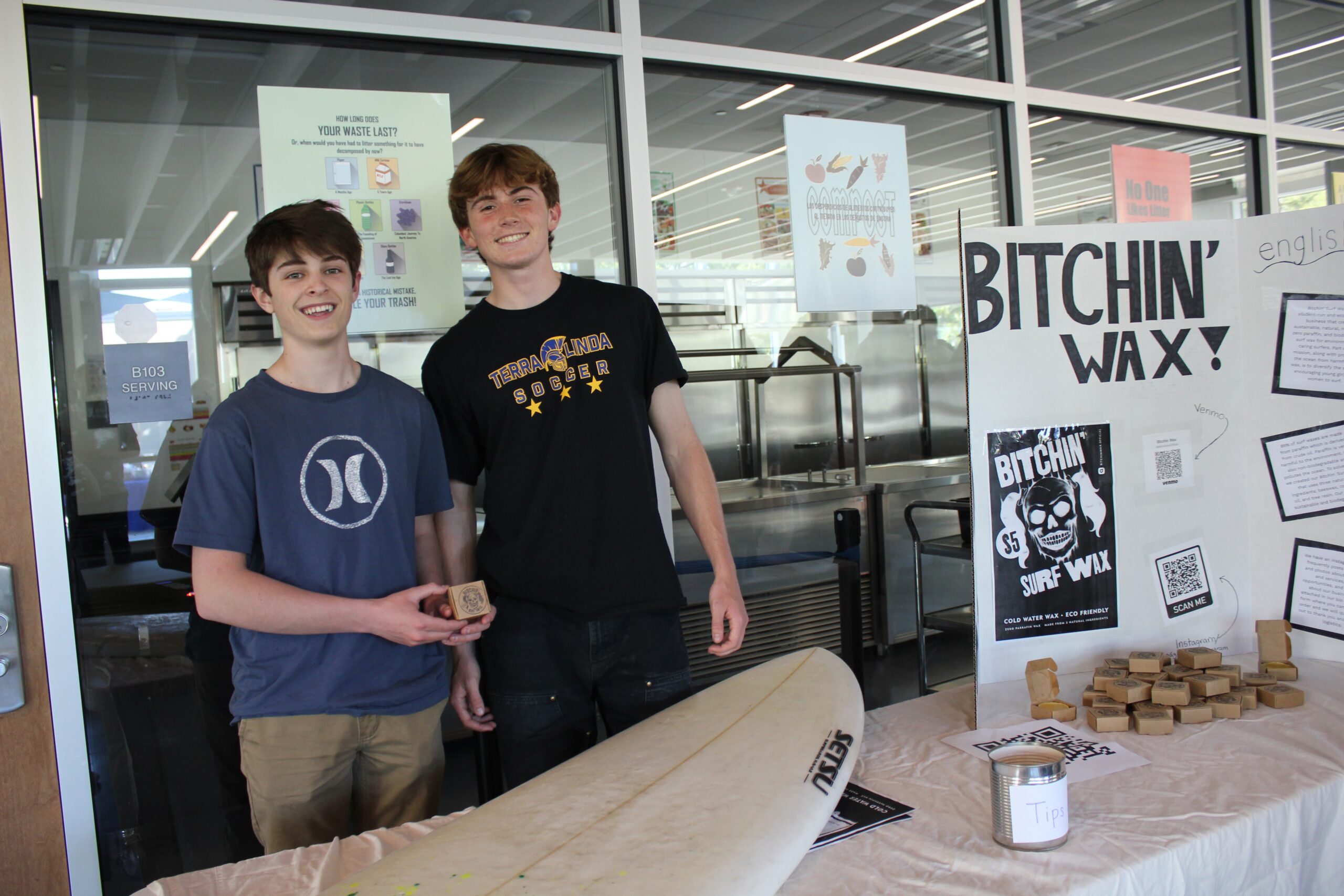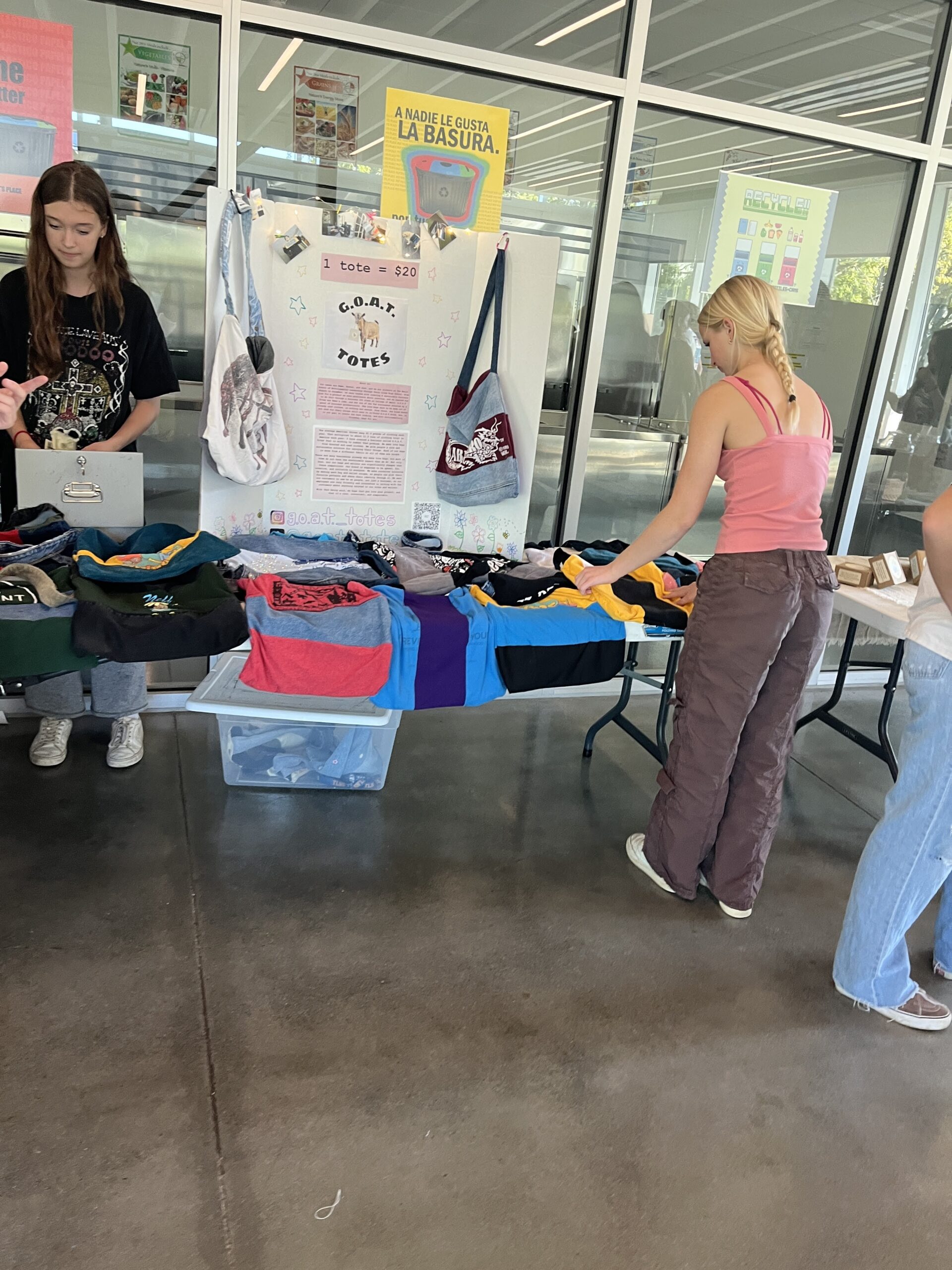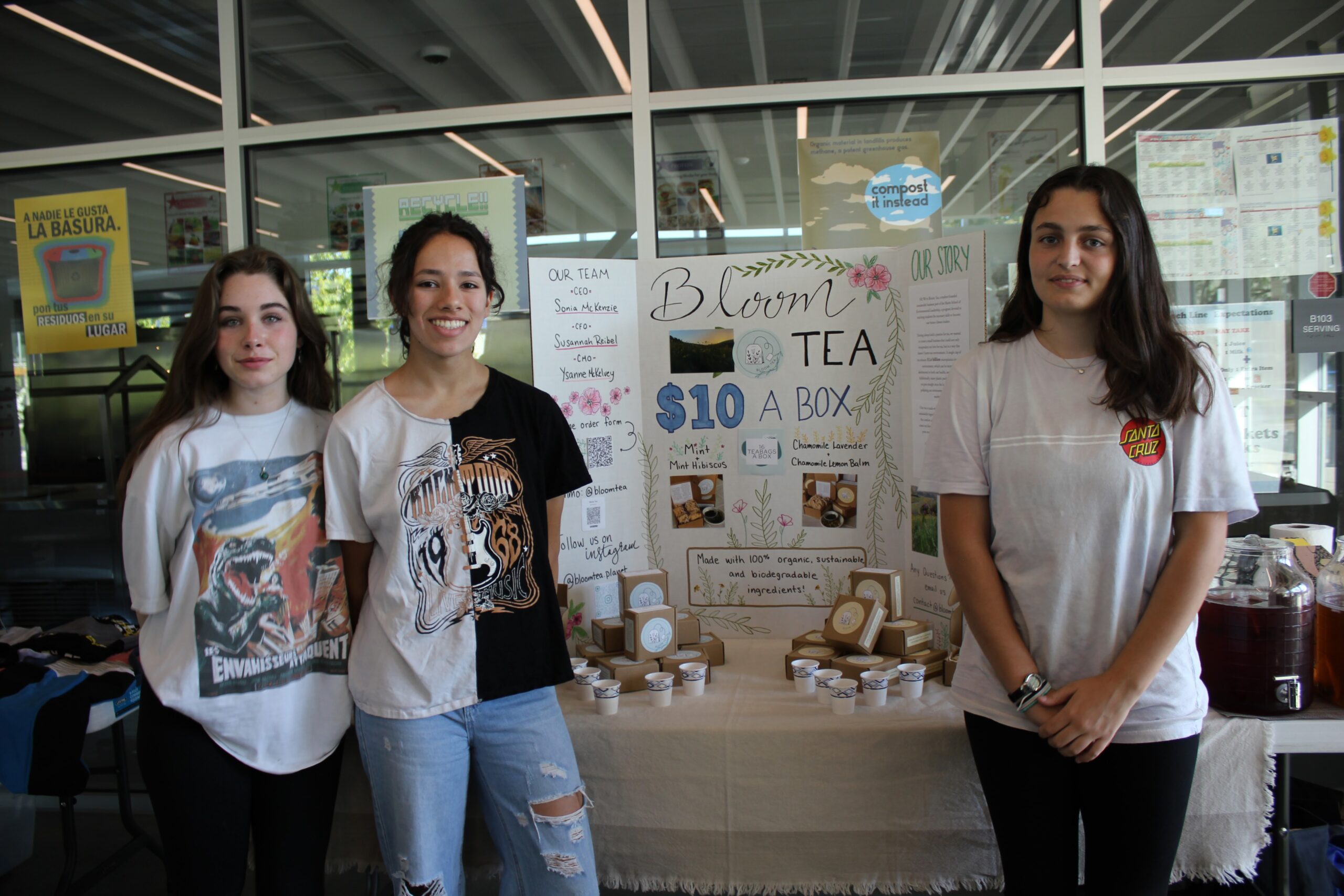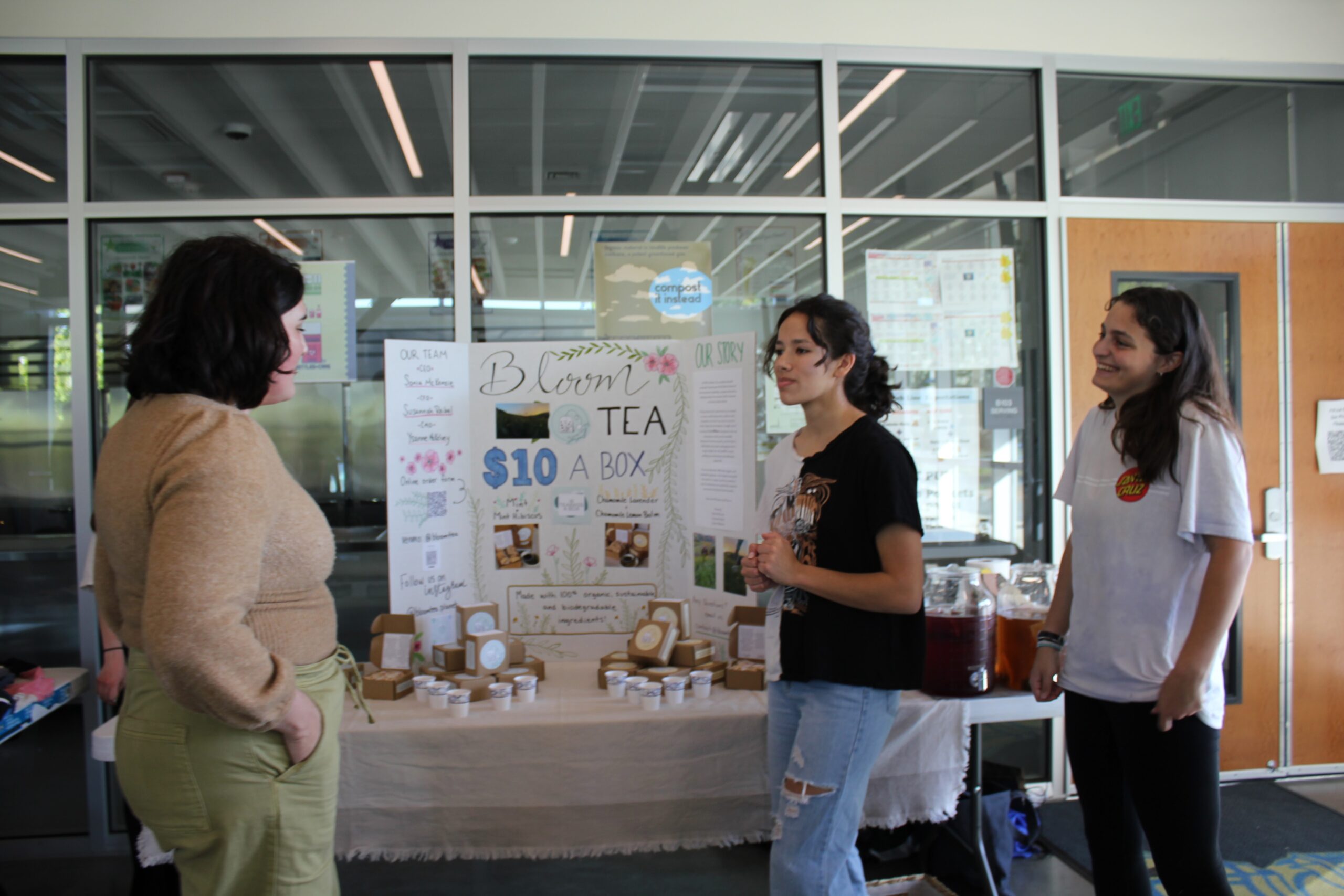Nestled in the rolling hills of north San Rafael sits the Marin School of Environmental Leadership (MarinSEL), which is housed at Terra Linda High School. On this campus of roughly 1,200 students, approximately thirty new students are accepted into MarinSEL each year. Essentially, MarinSEL is a “school within a school” that promotes project-based learning and fosters leadership development. Since its founding over ten years ago, MarinSEL has launched numerous future leaders that are ready and willing to tackle the challenges of our complex and ever-changing world. Similar to the vision of Ten Strands, MarinSEL gives students opportunities to create measurable results and tangible changes as they grow in ownership and agency of their high school education experience. The four Cs of collaboration, communication, creativity, and critical thinking form the foundation upon which all MarinSEL curriculum is created, and continual reflection about growth in these four domains is what really sets MarinSEL students apart. Throughout the four years that a student is a part of MarinSEL, leadership development, project management, design thinking, public speaking, community engagement, and community service are woven into the curriculum to create resilient, thoughtful, and agile leaders that are ready to face the challenges of tomorrow.
During the first year in MarinSEL, students engage in semester-long Leadership in Environmental Action and Design (LEAD) Projects, under the mentorship of local community partners. Topics for these LEAD groups range from food waste reduction to wildfire safety to stormwater management. Students work in small groups of five to seven students to create a project scope, identify measurable goals, engage in the work, pivot as needed, report results, and then reflect on learnings while identifying next steps. Year two, students repeat this process. But this time, LEAD projects last almost the entire school year, and they have the added focus of being connected to writing or changing policy. Past successes in LEAD project work include the campus partnering with organizations such as Extra Food and grading the county board of supervisors on a climate report card.

Seniors in the MarinSEL program spend their senior year involved in yearlong internships, where they put into practice the skills they have learned in their first three years in the program. Senior internships allow students the opportunity to spend time in companies doing authentic work that might inform a future career path. After interviewing with several intern partners, students are placed in internships, assigned mentors, and then charged with creating a scope of work. Students spend about two to three hours a week interning, and hopefully, by the end of the year, they have gained enough experience to know whether they desire to pursue a career or select a major based on the internship work they completed. While the opportunities that students encounter in their first, second, and final year are truly unique to any typical high school experience, there is just something extra special that takes place during junior year. Current MarinSEL interns are placed everywhere from the Buck Institute on Aging to the Agricultural Institute of Marin to All One Ocean.
For many in MarinSEL, junior year stands out as being the most transformative, mainly due to the unique set of skills students gain over the course of the year. All MarinSEL students are enrolled in an engineering class in which they learn how to use power tools and build structures. From learning various design principles to actually donning the safety goggles and work gloves to operate some of the heavy duty equipment, students are able to see how ideas drawn on paper can be created using hands and tools. By the end of the year, the students have gained so many skills that they are able to take their learning on the road to build a structure from scratch for the famous “goat build” project. For the project this year, students went to a ranch to build a structure for goats, in addition to structures specifically designed for play. (Who knew that goats were so playful?) When they arrived at the ranch early on a Thursday morning, they saw a wide and open field. After two straight days of building, they left on Friday as the sun set and saw a glorious structure that was ready to welcome goats. Our beloved engineering teacher, Ms. Allison Oropallo, noted that it is indescribable how accomplished the students feel after seeing the fruits of their hard labor.

Aside from this very hands-on experience, undoubtedly the biggest project of junior year is when all students in MarinSEL create a sustainable business. Through enrollment in a College of Marin Sustainable Business class instructed by Tim Wat, students learn how to create a business plan that focuses on the three Es of economy, equity, and the environment. Instructor Tim Wat was drawn to teaching this class because, after spending many years in private industry himself, he believes that “business is perhaps the most powerful institution in our culture and society; no other has the vast concentration of wealth, and thus power and influence.” As such, he wants to arm the next generation of students to use business as a force for good. He continues, “Learning to bring sustainable and equity-driven values to business is perhaps the most necessary mandate for present and future leaders in our world.”
During the first semester of the business class, students learn how to write a business plan and the importance of the triple bottom line, while they develop an individual idea to turn into a business. When students return from semester break, they write their own business plan to pitch to a real “shark tank” panel of judges. Ceci Osborn, a current senior in the program, commented that “preparing for the ‘shark tank’ was nerve-racking, but once you were on the other side of it, you really walked away with a sense of accomplishment.” Seven sustainable business ideas survived the shark tank this year, and the current line up of MarinSEL businesses includes everything from guitar picks made from the recycled plastic of expired credit cards and gift cards, to organically made dog treats, to shoe deodorizer, and even upcycled clothes.

CEO Sonia MacKenzie of Bloom Tea mused that “My business grew to be a big part of me, something that never really left my mind. Managing a business and being the CEO was the first time in a while I have felt truly passionate about a project, and I was determined to not just pass our business class, but for my idea to succeed.” Sonia so poignantly expresses what all educators wish for our students: for them to have a passion and an unabashed curiosity about something and about making that something successful. As Nick Hamilton, CEO of Fresh Boost, a sustainable shoe deodorizer, added, “My experience of being a CEO has been extremely valuable in realizing how much responsibility a leader must take in any project.” Students enrolled in MarinSEL do not shirk responsibility, and all of them are engaged in sports, jobs, clubs, and various extracurricular activities. In school, they are all enrolled in multiple AP classes, and they start school at 7:25 a.m., as the MarinSEL schedule calls for being enrolled in zero period. Managing all of this, while also making and marketing products, tracking financials, and ensuring that products brought to market are equitable and good for the environment, is no small task.
Leaning into her superpower of collaboration, Bitchin’ Surf Wax Founder and CEO Iris Abeck noted that “Starting a business as a high school student was a challenging endeavor, but it has taught me important lessons about perseverance and teamwork. The unexpected hurdles and setbacks we faced while launching this business required us to persist and think creatively to overcome them.” Clearly, the foundational skills Iris learned in MarinSEL surrounding the four Cs of collaboration, communication, critical thinking, and creativity allowed her to leverage the strengths of her classmates so that roadblocks turned into opportunities. G.O.A.T. Totes CEO Emma Pearson was particularly interested in making sure that her product had a small carbon footprint, and she noted that “many ideas require resources from places like Amazon or other large companies that do not rely on sustainable transportation and sources, which can cause negative environmental impacts.” Emma’s bags are made from donated clothing and thread, which allows her company to “have as small a negative impact as possible, while still helping to reduce the amount of plastic bag use.”

For many typical high school students, junior year stands out as the year when they start driving or go to the prom. For the special group of students that are enrolled in the Marin School of Environmental Leadership, junior year stands out for a very different reason. For them, this is the first year that they are part of a business that actually “goes to market.” In the words of EcoPlay CEO Collette Treewater, “The best part of creating a sustainable business was the ability to see all the hard work I put into an idea become a reality.” CEO of the SHTICKS sustainable insect repellent, Annie Sung, wisely concludes that “everything is time and money,” and that “while creating a sustainable business is a financial challenge, advertising not only the products, but climate change itself, is a challenge as well.” Today, students are facing a rapidly changing world, and many of them will engage in work that we cannot even imagine at this point. To succeed, students must face these challenges head on, and due to the amazing opportunities they have been given in this program, students coming out of the Marin School of Environmental Leadership will already have a leg up on the competition.

